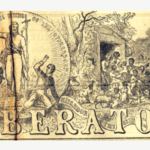Amidst the worst of times, three bold women banished fear. They dared to declare that collectivism was evil. They stood up for natural rights, the only philosophy that provided a moral basis for opposing tyranny everywhere. They celebrated old-fashioned rugged individualism. They envisioned a future when people could again be free. They expressed a buoyant optimism that inspired millions.
All were outsiders who transcended difficult beginnings. Two were immigrants. One was born in frontier territory not yet part of the United States. They struggled to earn money as writers in commercial markets dominated by ideological adversaries. All were broke at one time or another. They endured heartaches with men — one stayed in a marriage that became sterile, and two became divorced and never remarried.
These women who had such humble beginnings — Rose Wilder Lane, Isabel Paterson, and Ayn Rand — published major books during the same year, 1943: The Discovery of Freedom, The God of the Machine, and The Fountainhead, respectively. The women, recalled journalist John Chamberlain, “with scornful side glances at the male business community, had decided to rekindle a faith in an older American philosophy. There wasn’t an economist among them. And none of them was a PhD.” Albert Jay Nock declared, “They make all of us male writers look like Confederate money. They don’t fumble and fiddle around — every shot goes straight to the centre.”


